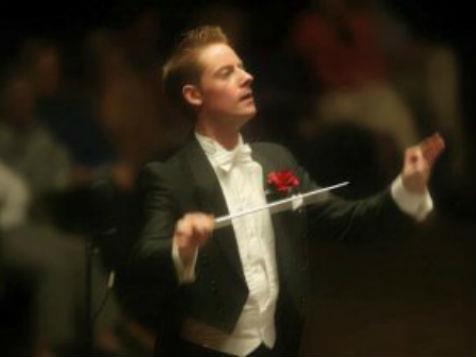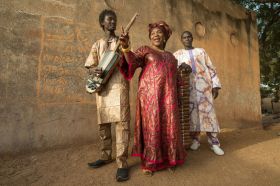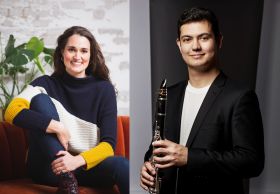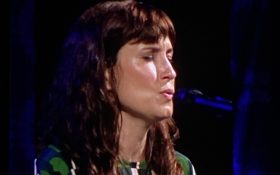A gala concert to celebrate Richard Wagner in the 200th anniversary year of his birth and 130th year of his death is no simple undertaking. As conductor of the Royal Melbourne Philharmonic Orchestra and Chorus, Andrew Wailes chose enough highlights from nine of Wagner’s operas to take the edge off the appetite of even the most avid Wagner fan. Nothing less than a full Ring cycle would really satisfy the true devotee, but most would have been more than satisfied with what was on offer on Sunday night, 13 October 2013.
A major challenge in assembling concert highlights is finding suitable breaks in operas that have been composed all the way through. Although there were a couple of uneasy terminations, Wailes managed to construct final cadences that avoided being unduly clunky. The choice of repertoire was not only guaranteed to please but was generally well suited to the forces at his disposal. The main exception to this was the keyboard simulation of a harp rather than the real thing. It was a pity that David Wakeham’s splendid account of Wolfram’s ‘Song to the Evening Star’ suffered from this compromise. Despite the substitution, his rich, creamy baritone was persuasive enough to make this familiar classic a highlight.
As compere for the evening, Wailes provided a helpful context for each item. His lively, personal style and his ability to judge just how much information was needed for a fuller appreciation added to the enjoyment. His bookending of the concert with excerpts from Die Meistersinger von Nürnberg added to his personal connection with the music as he had made his debut with Opera Australia as an Apprentice in this opera in 1995.
Both excerpts were impressively performed, with the full orchestra making the most of the majestic opening March and the final jubilant outpourings. The brass made a particularly notable contribution to these items and played consistently well throughout the evening. As has come to be expected under the assured baton of Andrew Wailes, the Royal Melbourne Philharmonic Choir and Melbourne University Choral Society gave disciplined, effectively modulated performances. The youthful soprano sound was generally vibrant and well sustained and the men sang with vigour and emotional intensity. Although the alto line would have benefitted sometimes from a darker, richer timbre for these operatic pieces, the blending of voices and the way the parts came together into an expressive whole was admirable. Some of the chording in the softer passages was very beautiful indeed.
All of the soloists were excellent in their own way. Leane Keegan’s experience as a notable Wagner singer informed her interpretation of Erda’s warning to Wotan. As the earth goddess, her gorgeous rich contralto was invested with authority and dark foreboding. For her two items from Tannhäuser the young soprano, Zara Barrett, gave vocally secure and emotionally expressive performances, her strong voice carrying over the orchestra without any difficulty. Rosamund Illing also has a vocal technique that enables her to cut through an even fuller orchestral sound. She sang the demanding ‘Liebestod’ from Tristan und Isolde with considerable depth of feeling, stretching the long vocal lines in surges of passion that rode over the orchestra at all the crucial moments.
With the memory Bryn Terfel’s recent performance of ‘Wotan’s Farewell’ in Hamer Hall still reasonably fresh, it was inevitable that comparisons with David Wakeham would be made, no matter how unfair. Nevertheless, despite the fact that Terfel’s immense vocal wattage puts just about every other potential Wotan in the shade, Wakeman’s vocal qualities are not dissimilar to Terfel’s in some ways. Although his middle register was occasionally over-ridden by the full orchestra, the beauty and gathered richness of his voice was evident in every note. Not surprisingly, given his operatic experience, he made an impressive Gurnemanz in the ‘Grail Scene’ from Parsifal.
In addition to ‘Siegfried’s Death and Funeral March’ from Götterdämmerung, a piece that Andrew Wailes pointed out would be especially appreciated by fans of the film Excalibur, the other item for orchestra alone came as an encore at the end of the concert in the form of ‘The Ride of the Valkyries’. Or maybe not for orchestra alone – I’m sure we heard a few behind the scenes repetitions of ‘Hoyotoho!’ coming from the soloists, who had just left the stage after their enthusiastic reception. After all, who could resist those trilling piccolos, stirring brass and the full string sound so ably led by Concertmaster, Matthew Rigby? Andrew Wailes had obviously picked yet another winner.
Rating: 3 1/2 stars
Royal Melbourne Philharmonic Choir
Melbourne University Choral Society
Royal Melbourne Philharmonic Orchestra
Andrew Wailes – conductor
Zara Barratt – soprano
Rosamund Illing – soprano
Liane Keegan – contralto
David Wakeham – baritone
For more information, visit Royal Melbourne Philharmonic.
Image: Conductor Andrew Wailes by Royal Melbourne Philharmonic.





